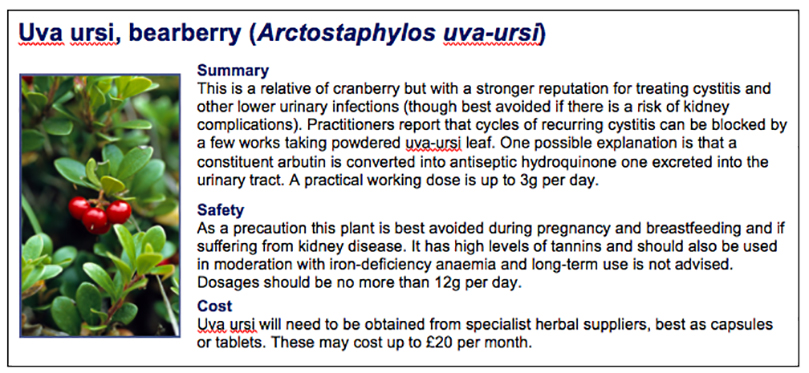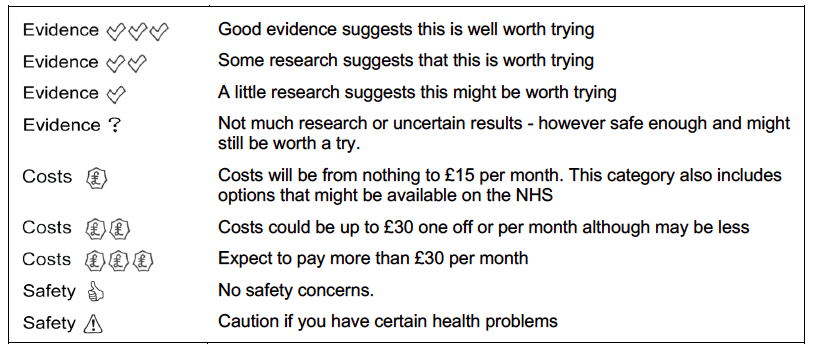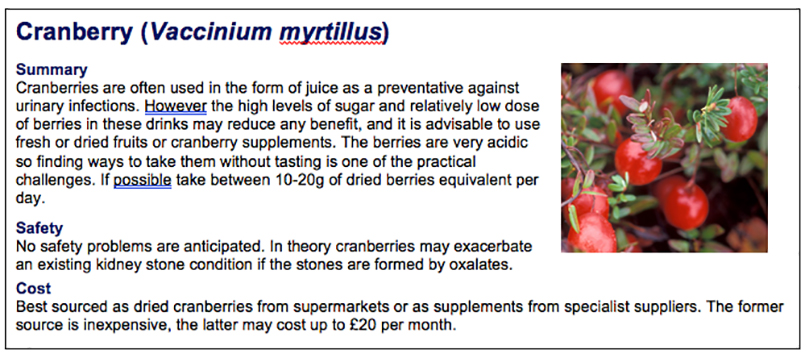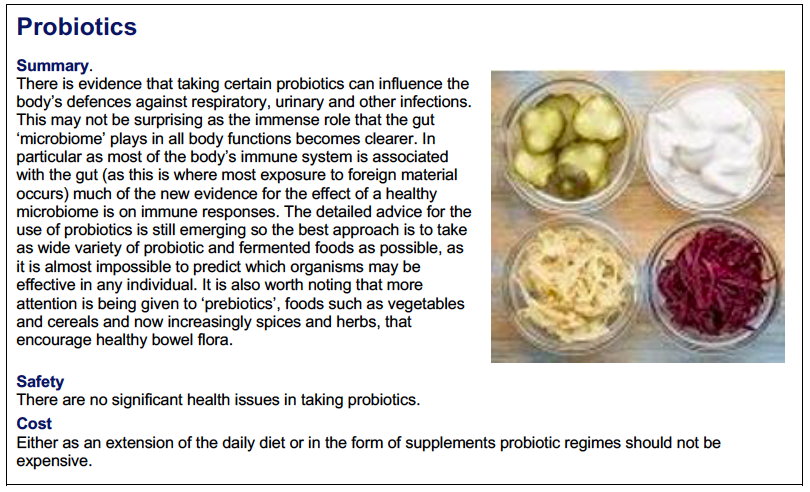Cystitis (and other urinary infections)
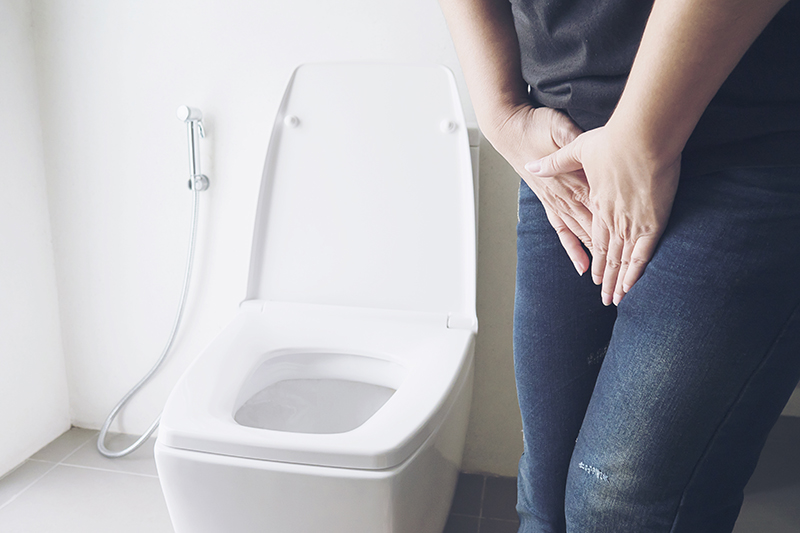
What doctors say*
* Official guidelines from NICE, NHS and other medical authorities.
Should antibiotics be used? >
Non-pregnant women: immediately or wait 48 hours unless symptoms worsen.
Pregnant women, men, children or young people: immediately depending on severity of symptoms, risk of complications, previous urine culture and susceptibility results,
Prescribers should also take note of previous antibiotic use which may have led to resistant bacteria, and local antimicrobial resistance data.
Likely duration if untreated >
A few days up to many weeks or even longer if established. Between 25-40% of cases will clear up without antibiotics.
Conventional selfcare advice >
- Drink a lot of extra fluids, mainly water
- Urinate as soon as the need arises to reduce build up of infection
- Advise paracetamol or ibuprofen for pain
Opportunities for antibiotic alternatives >
With prescription. Most home remedies are compatible with antibiotic prescription: however check with your doctor to be sure.

Urinary infections such as cystitis, urethritis and (in men) prostatitis are very common infections causing much misery to millions around the world. They are most often caused by E.coli and other ‘gram-negative’ bacteria, and are thus on principle susceptible to antibiotic treatment.
However these bacteria are also likely to develop antibiotic-resistant strains and increasingly the first line of antibiotic treatments (trimethoprim nitrofurantoin) needs extending with others more capable of dealing with resistant strains (penicillins and fosfomycin).
If you have been prescribed an antibiotic it is important that you complete the course (unfinished courses are more likely to engender resistance in your own tract). However the more that urinary infections can be managed without needing antibiotics the better. It will be useful to consider some of the options below.
In self managing urinary infections do watch out for the risk of infection moving up to the kidneys. If you get pain in the abdomen, especially up the sides and to the back, or get fevers, chills, lack of urine, sickness or diarrhoea, report your symptoms to a doctor without delay.
There are no strong self care options for reducing an actual urinary infection if this is confirmed and a suitable antibiotic may be necessary. The focus may be on using the remedies below in a longer term approach to reducing recurring infections.

Uva-ursi
> what do these ratings mean?
Otherwise known as bearberry, uva ursi is established by the European Medicines Agency for treatment of symptoms of mild recurrent lower urinary tract infections such as burning sensation during urination and/or frequent urination in women. Daily doses should be no more than 15g of the dried leaf in hot water (or 8mg of herb as capsule or tablet) to avoid the irritating effects of high tannin levels.
As a precaution uva ursi should also be avoided during pregnancy and breastfeeding and if there is a risk of kidney disease.
Cranberry
> what do these ratings mean?
Cranberry is a very popular remedy to relieve the pain of urinary infections such as cystitis, most often in the form of juice, and also as various supplement forms. The reviewed evidence however is mixed, with one possible confusing factor the high sugar levels in cranberry juice. It seems better to use dried fruits or cranberry supplements.
Probiotic suppositories
> what do these ratings mean?
Women have often used yoghurt applications to provide relief from the symptoms of cystitis as well as vaginal infections. Initial justification was that the slightly acidic nature of yoghurt might help restore the protective acid environment of the vagina (often a host to recurrent urinary infections). However there is promising evidence that at leat one common probiotic organism might provide additional protection.

Probiotics
> what do these ratings mean?
Probiotics are thought to work by preventing other infectious bacteria from climbing up the urinary tract and causing infection. However there is only mixed and inconclusive evidence that taking probiotics orally can help reduce the severity and frequency of urinary infections.
Traditional home remedies worth trying
Barley water
An old and very quick-acting remedy for easing urinary pain is to make homemade barley water. Barley contains a soluble carbohydrate, mannitol, that is eliminated by the kidneys and acts directly in the urinary tract as an ‘osmotic diuretic’ (ie it pulls more water along with it so diluting the urine) and it even appears to soothe irritated urinary tract at the same time. It is extremely safe though does add calories if you are on a tightly-controlled diet. To make barley water at home take 100g of pearl barley (obtainable in larger supermarkets), rinse under a cold tap and then add to a saucepan with a litre of water. Bring to the boil and simmer for 15-20 minutes and the water turns white. Add the juice of at least two lemons to this, strain and keep in a closed container in the fridge. Drink a good cup of this at a time, and probably 2-3 times a day. If it helps you will see the benefits within an hour or so. Barley water can be used along with cranberry supplements as well.
